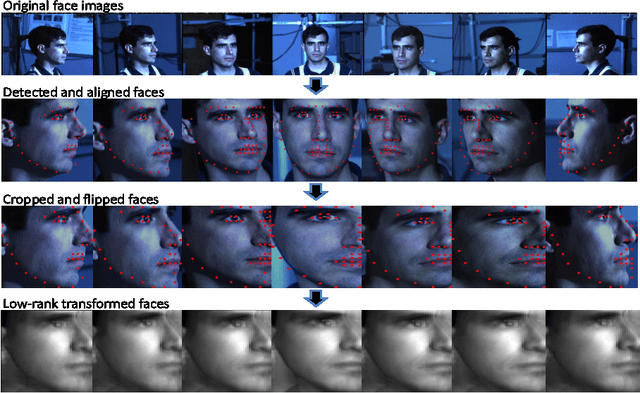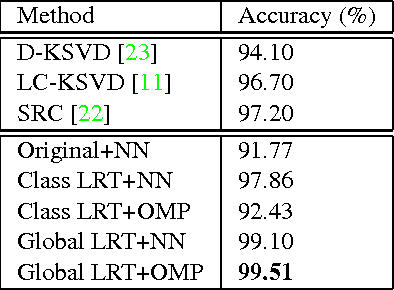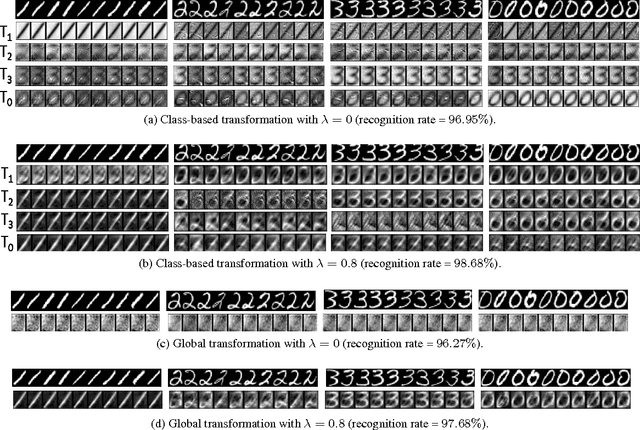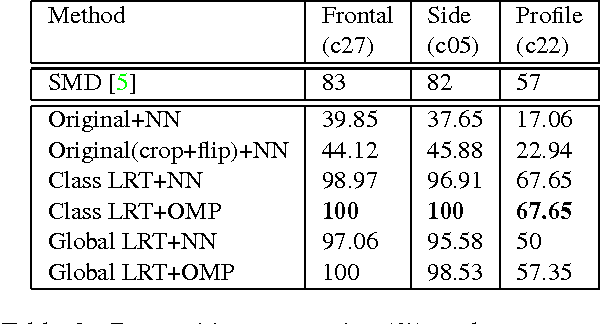Domain-invariant Face Recognition using Learned Low-rank Transformation
Paper and Code
Aug 01, 2013



We present a low-rank transformation approach to compensate for face variations due to changes in visual domains, such as pose and illumination. The key idea is to learn discriminative linear transformations for face images using matrix rank as the optimization criteria. The learned linear transformations restore a shared low-rank structure for faces from the same subject, and, at the same time, force a high-rank structure for faces from different subjects. In this way, among the transformed faces, we reduce variations caused by domain changes within the classes, and increase separations between the classes for better face recognition across domains. Extensive experiments using public datasets are presented to demonstrate the effectiveness of our approach for face recognition across domains. The potential of the approach for feature extraction in generic object recognition and coded aperture design are discussed as well.
 Add to Chrome
Add to Chrome Add to Firefox
Add to Firefox Add to Edge
Add to Edge